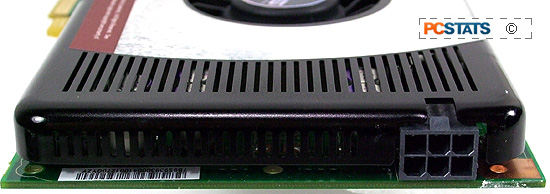nVIDIA put a smile on gamers around the world with its
release of the 'G92' graphics core. Thus far, competition from the AMD camp has been pretty light, even though it has refreshed its product lineup recently. The nVidia GeForce 8800GT GPU offers gamers exceptional performance for a relatively low price point, and I think of all graphics cores on the market today it has the best value.
At the moment there are two G92 based products from nVIDIA, the GeForce 8800GT and the Geforce 8800GTS. Most of the attention has been focused on the 8800GT simply because it's slightly cheaper, and many GeForce 8800GT videocards have no problem overclocking to 8800GTS speeds! ;-) Finding an nVIDIA GeForce 8800GT videocard on the market isn't too hard, but expect these graphics cards to get snapped up rather quickly.
Whether you like it or not, with Microsoft holding firm on its "no DirectX 10 for
WindowsXP" position, gamers have to upgrade to Windows Vista sooner or later.
With DirectX 10 titles like BioShock, Unreal Tournament 3 and World in Conflict
making waves the lure is certainly getting to strong to resist.
For this, you need a killer fast DirectX10 compliant videocard and a computer
loaded with Windows Vista. Enter ASUS and a very strong contender for your cash - the PCI
Express x16 ASUS EN8800GT TOP/G/HTDP/512M/A videocard. GeForce 8800GT-class
videocards tend to overclock well, so it's no surprise that many
come pre-overclocked from the factory floor. The Asus EN8800GT TOP
videocard is tweaked to 700 MHz core and 1000 MHz memory, up from the default
600 MHz core / 900 MHz memory settings. Heck it's even faster than a
Geforce 8800GTS's 650 MHz core and 970 MHz default clock speed! Oh Asus, how you
spoil us gamers!
The Asus EN8800GT TOP/G/HTDP/512M/A videocard comes with
512MB of onboard memory and is priced at a reasonable $312 CDN ($310 USD, £154 GBP). That's
about the middle of the pack for GeForce 8800GT videocards, and well below
the price point of 8800GTS 512MB models. The EN8800GT TOP also comes with a full
DirectX 10 copy of the video game Company of Heroes: Opposing
Fronts.
The Asus EN8800GT TOP/G/HTDP/512M/A videocard is quite
obviously based on the nVidia reference design. More importantly, this videocard
uses a single slot heatsink - particularly important if you expect to install it
within a small form factor PC like the Shuttle SG33G50. It's a refreshing change from the dual slot heatsink strapped onto GeForce 8800GTX/GTS videocards.

Hidden under the large metal EMI shield is an aluminum heatsink which runs the length of the videocard. On
the top right hand corner of the EN8800GT TOP/G/HTDP/512M/A videocard is a six pin
PCI Express x16 power connector. Don't forget to plug that in before powering on
the system or you'll make it angry. At the top left hand corner of the
videocard you'll see the SLI bridge connector; the card can be run
with one other GeForce 8800GT videocard in SLI mode for a little extra 3D
goodness.

PCSTATS tests all graphics cards in a motherboard
sitting on top of a desk, not in a case. Noise and noisy videocards are like
water torture, so we can definitely say the Asus EN8800GT TOP/G/HTDP/512M/A
is quiet running. The videocard heatsink is equipped with a 50mm PWM
fan that is temperature controlled. For most of our test regime it ran at low
RPM. There were a few instances when the fan had to spin up, and in those cases the
EN8800GT TOP videocard was pretty loud. I doubt you'd notice when you're knee
deep in the digital mud of a good DX10 game fighting off the enemy and reaching
for a fresh mag... if you're like me, you're too engrossed by what's in front of your
character to notice anything else.
Asus has done an excellent job at bundling software with its videocards, and we're definitely happy a copy of the DirectX 10 title Company of Heroes: Opposing Fronts is included here. The original Company of Heroes was acclaimed as one of the best real time strategy games of 2006, and I'm sure there are more than a few gamers looking forward to the sequel.
It's also nice that since the game is DirectX 10, it'll
push the limits of the videocard harder than an older DirectX 9 game. Okay, a look at the NVidia G92 core is next, and then we'll dive into benchmarks and overclocking!

